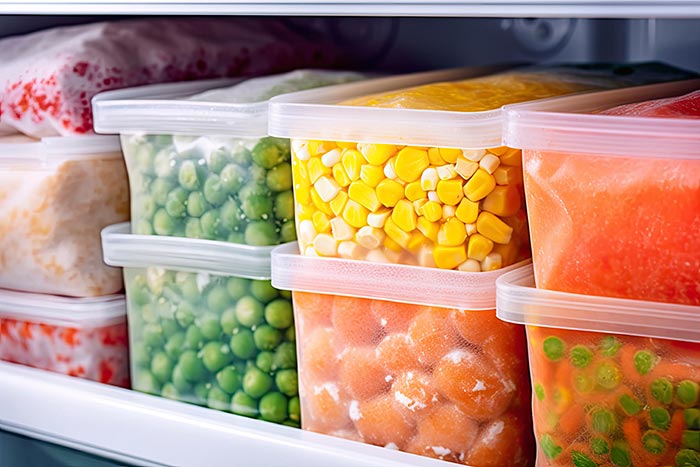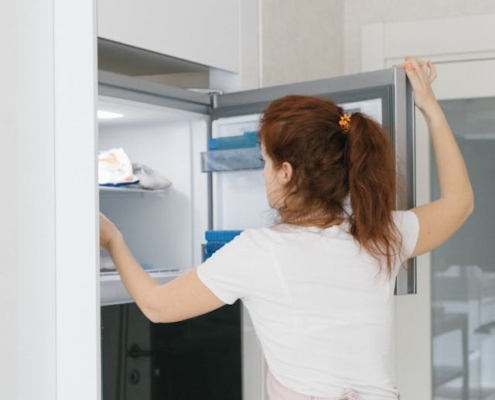Extending the Life of Your Freezer: Maintenance Tips
 Freezers have become an indispensable appliance in every household, preserving our food and simplifying our lives. However, like any other appliance, a freezer requires regular maintenance to operate efficiently and extend its lifespan. Neglecting this vital task can lead to increased energy bills, reduced performance, and even premature breakdowns. Fortunately, maintaining your freezer doesn’t have to be a daunting chore.
Freezers have become an indispensable appliance in every household, preserving our food and simplifying our lives. However, like any other appliance, a freezer requires regular maintenance to operate efficiently and extend its lifespan. Neglecting this vital task can lead to increased energy bills, reduced performance, and even premature breakdowns. Fortunately, maintaining your freezer doesn’t have to be a daunting chore.
In this article, we’ll share essential tips and tricks to help you keep your freezer running smoothly. From understanding the critical components of your freezer to mastering the art of defrosting and troubleshooting common issues, this guide will walk you through the process of extending the life of your freezer with practical and straightforward maintenance tips.
Article Summary:
- Understanding Your Freezer’s Components
- The Significance of Regular Cleaning
- Proper Defrosting Techniques
- Importance of Seal Maintenance
- Optimizing Freezer Placement and Temperature Settings
- Professional Maintenance and When It’s Needed
1. Understanding Your Freezer’s Components
Before we dive into the maintenance tips, it’s essential to have a basic understanding of your freezer’s components. This knowledge will help you identify potential issues and troubleshoot them effectively.
- Condenser Coils: These coils remove heat from the freezer and release it outside, helping to maintain a constant temperature inside.
- Evaporator Coils: These coils absorb heat from inside the freezer, keeping your food frozen.
- Compressor: The compressor is responsible for circulating the refrigerant through the coils to maintain the temperature inside.
- Door Seal: This rubber gasket helps keep cold air inside the freezer and prevents warm air from seeping in.
2. The Significance of Regular Cleaning
Keeping your freezer clean is crucial for its longevity and also for food safety. Over time, dirt, dust, and grime can build up on the condenser coils, making them less efficient in removing heat from the freezer. In fact, not cleaning the coils is one of the first things to do if your freezer won’t freeze. This buildup can also lead to increased energy consumption. It’s recommended to clean the condenser coils at least once every six months.
Additionally, regularly cleaning the inside of your freezer helps prevent odors, bacteria growth, and cross-contamination of food. It’s best to empty out your freezer and wipe down all surfaces with a mixture of warm water and mild detergent. Also, remember to clean the door seal using a damp cloth to remove any buildup or debris.
3. Proper Defrosting Techniques
If you have a manual defrost freezer, it’s essential to defrost it regularly to maintain its efficiency. When ice builds upon the evaporator coils, it can hinder their ability to absorb heat and cause the freezer to work harder, leading to increased energy consumption. It’s recommended to defrost your manual defrost freezer at least once every six months or when there is a quarter-inch of ice buildup.
To defrost your freezer, unplug it and remove all food items. Place towels at the bottom to absorb any water that may drip during defrosting. Use a hairdryer or a bowl of hot water to speed up the process, but do not use sharp objects to scrape off ice as this can damage the coils. Once defrosted, wipe down the inside of your freezer and plug it back in.
4. Importance of Seal Maintenance
The door seal or gasket is a critical component of your freezer, as it ensures that cold air stays inside and warm air stays out. Over time, the seal can become cracked or damaged, allowing cool air to escape and making the freezer work harder to maintain its temperature.
It’s essential to regularly check the seal for any signs of damage and replace it if necessary. To test the seal, close the door on a dollar bill – if you can easily pull out the bill, it’s time to replace the seal.
5. Optimizing Freezer Placement and Temperature Settings
 The location of your freezer plays a significant role in its efficiency and lifespan. It’s best to place your freezer away from heat sources such as direct sunlight, ovens, or heating vents.
The location of your freezer plays a significant role in its efficiency and lifespan. It’s best to place your freezer away from heat sources such as direct sunlight, ovens, or heating vents.
Additionally, the ideal temperature for a freezer is between 0-5 degrees Fahrenheit. Setting the freezer temperature too high is a common freezer mistake. Any lower can lead to increased energy consumption and potential food spoilage.
6. Professional Maintenance and When It’s Needed
While regular maintenance can significantly extend the life of your freezer, there are times when professional maintenance or appliance repair may be necessary. If you notice any unusual noises, excessive frost buildup, or inconsistent temperatures, it’s essential to call a professional appliance repair company right away.
For trusted appliance repair in Atlanta and the surrounding communities, call Comfort Appliance Repair. Our team of experienced technicians is available for speedy freezer and refrigerator repair, washer repair, and more. Located in Covington, we have the experience to solve all your appliance issues. Don’t wait; call us today!
By Dennis Godynuk, Owner of Comfort Appliance Repair
Dennis Godynuk is the owner of Comfort Appliance Repair in Covington, GA. Comfort Appliance provides fast and reliable repair services for all major household appliances. Dennis and his team of experienced technicians can tackle any problem, from broken refrigerators to malfunctioning dishwashers, and their prices are very competitive. Customers can rest easy knowing that their appliances are in good hands when they call Comfort Appliance Repair.



